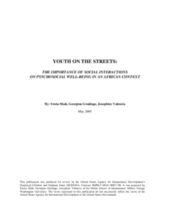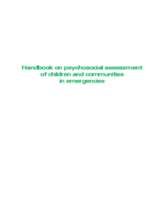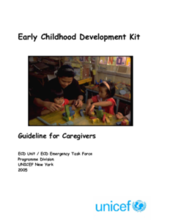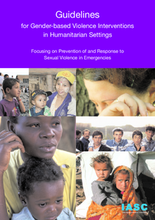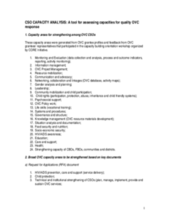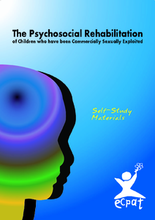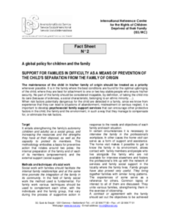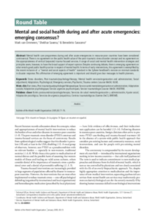Displaying 491 - 500 of 526
This manual aims to help trainers, OVC programme staff and volunteers refocus on the non-material support they offer to children and to demonstrate how this can be offered in a structured way.
Research on the psychosocial factors contributing to distress of children living and working on the streets in Ethiopia. Highlights the importance of facilitating social relationships and connectedness. Suggests intervention constructs and measures based on the Psychosocial Child Well-being model.
A guidebook focusing on the assessment to be conducted when an emergency first hits or just after a major event in an armed conflict. Outlines the preparation needs of an assessment team and describes what an assessment should concentrate on.
Guidelines for caregivers of children in emergency situations, with a focus on the role of play in childhood learning and development. Includes a comprehensive list of suggested activities.
Comprehensive toolkit and resource pack for mobilising community-led OVC care. Includes detailed resources for training home visitors.
Comprehensive guidelines for dealing with the planning, establishment, and coordination of multisectoral interventions to prevent and respond to sexual and gender-based violence.
This document provides a tool that was used to assess broad capacity areas for quality OVC response in Uganda.
A self-study manual on the care, protection and psychosocial rehabilitation of commercially sexually exploited children.
Brief summary of the importance of social work in preventing family separation, including increasing empowerment, social support and self-assessment processes.
A summary of the debate on the value of PTSD and trauma-focused care during and after acute emergencies. Argues for and outlines distinct intervention strategies to be considered for acute emergency and post-emergency phases.


